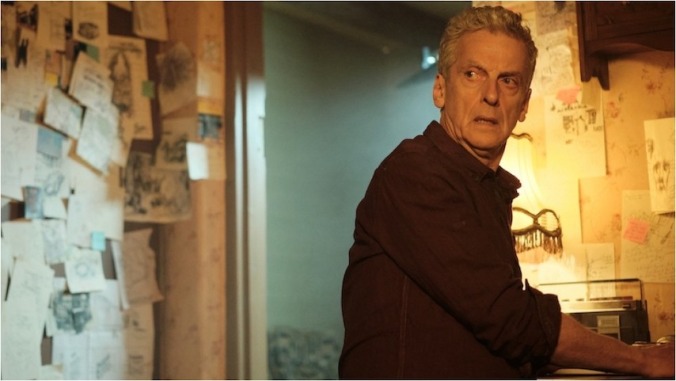The Devil’s Hour Finds Its Feet In a Thornier, More Straightforward Second Season
Photo: Prime Video
Although there are more hours of television being churned out for our collective entertainment than ever before, it’s still surprisingly rare to find a series that takes genuine risks. In a world full of reboots, remakes, and spinoffs, any show that tries to tell a familiar story in a new way or that swings for the fences in terms of the narrative ideas it’s willing to wrestle automatically stands out from the pack. The first season of Prime Video’s The Devil’s Hour certainly did that, though your mileage will undoubtedly vary on how effective you found its overly complicated puzzle box plot in unpacking the big issues it was meant to be wrestling with.
One part serial killer drama, one part supernatural thriller, and one multiverse mystery, with a dash of philosophy and metaphysics thrown on top, The Devil’s Hour is a series that, in many ways, defies explanation. At times, its first season felt almost too high concept. Its competing timelines and realities were often more confusing than thrilling even for viewers already schooled in the specifics of multiversal mechanics, and the show was remarkably stingy with anything that could be charitably considered answers until the season’s final episode. Thankfully, the series’ second outing, free of the narrative shackles meant to try and obfuscate the true nature of the bonkers story the show is telling, feels much more confident and compelling. Leaner and more straightforward, The Devil’s Hour Season 2 finally gets to openly wrestle with the big philosophical and moral questions the series’ basic premise raises and is much more interesting to watch as a result.
In the simplest of terms, the series’ story follows Lucy Chambers (Jessica Raine), a social worker who wakes up each night at 3:33 am—the so-called “devil’s hour”—from horrific nightmares of a life that isn’t hers. But when her name is linked to a string of brutal murders, she meets a mysterious, foreboding man named Gideon Shepherd (Peter Capaldi). The Season 1 finale reveals that Gideon has the unique ability to “remember” the future, thanks to the fact that he’s essentially been living out a time loop of his own life for many, many years. (He estimates at one point he’s died “thousands” of times.)
Throughout this personal purgatory, Gideon has been using his foreknowledge to try and right wrongs—to save people who died tragically or to stop (sometimes violently) those who intend great harm to those around them. His superpower is essentially revision, a photographic ability (enhanced via extensive note-taking) to remember many lifetimes’ worth of grisly crimes and prevent them from happening in his next loop. He not only knows Lucy, but he once used his ability to change the worst event of her life: her mother’s suicide. But shifting that single moment in her timeline has led to many unforeseen consequences—the most significant being the existence of her son Isaac (Benjamin Chivers), who doesn’t belong in any timeline and technically wasn’t supposed to exist.
Season 2’s larger mystery is much more streamlined, though it contains a similar hint of potentially cosmic menace. In it, Lucy and Gideon must join forces to try and thwart a looming threat, a monstrous event with ties to Lucy’s past lives, which Gideon has apparently researched for multiple loops of his own existence. But since he’s wanted for no small amount of violent crimes at this point, she’s forced to take a more hands-on role in searching for answers and confronting potential foes. It’s honestly delightful to see Lucy get the chance to be proactive for once, instead of constantly reacting to the multitude of seemingly inexplicable things happening around her. And allowing the audience to know (at least some elements of) the truth of what they’re watching helps the entire series stop feeling quite so removed and distant.
-

-

-

-

-

-

-

-

-

-

-

-

-

-

-

-

-

-

-

-

-

-

-

-

-

-

-

-

-

-

-

-

-

-

-

-

-

-

-

-








































